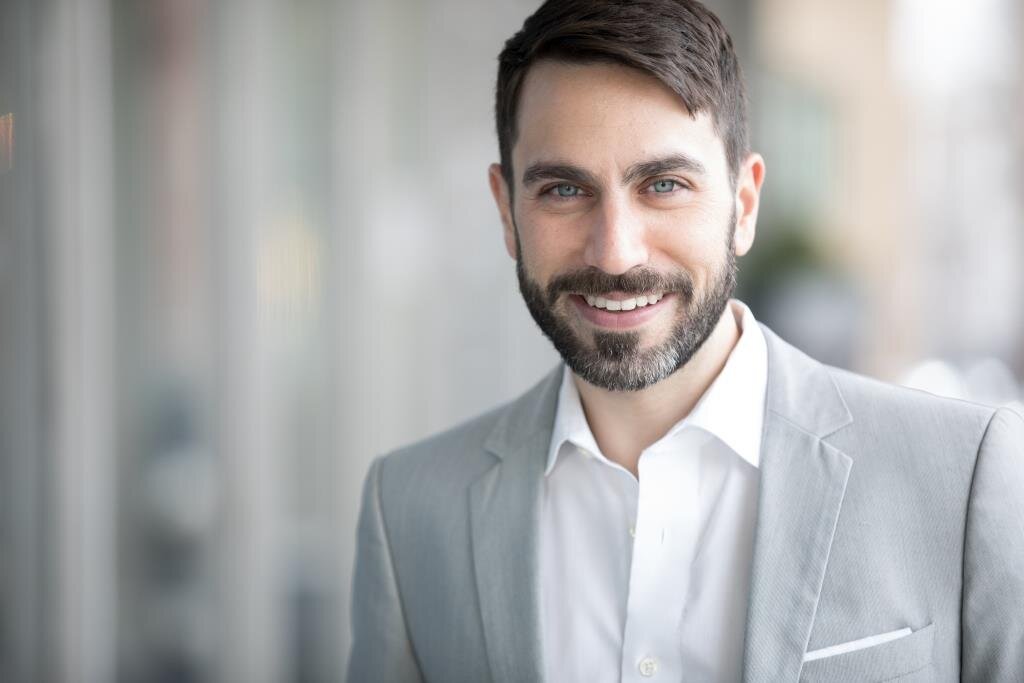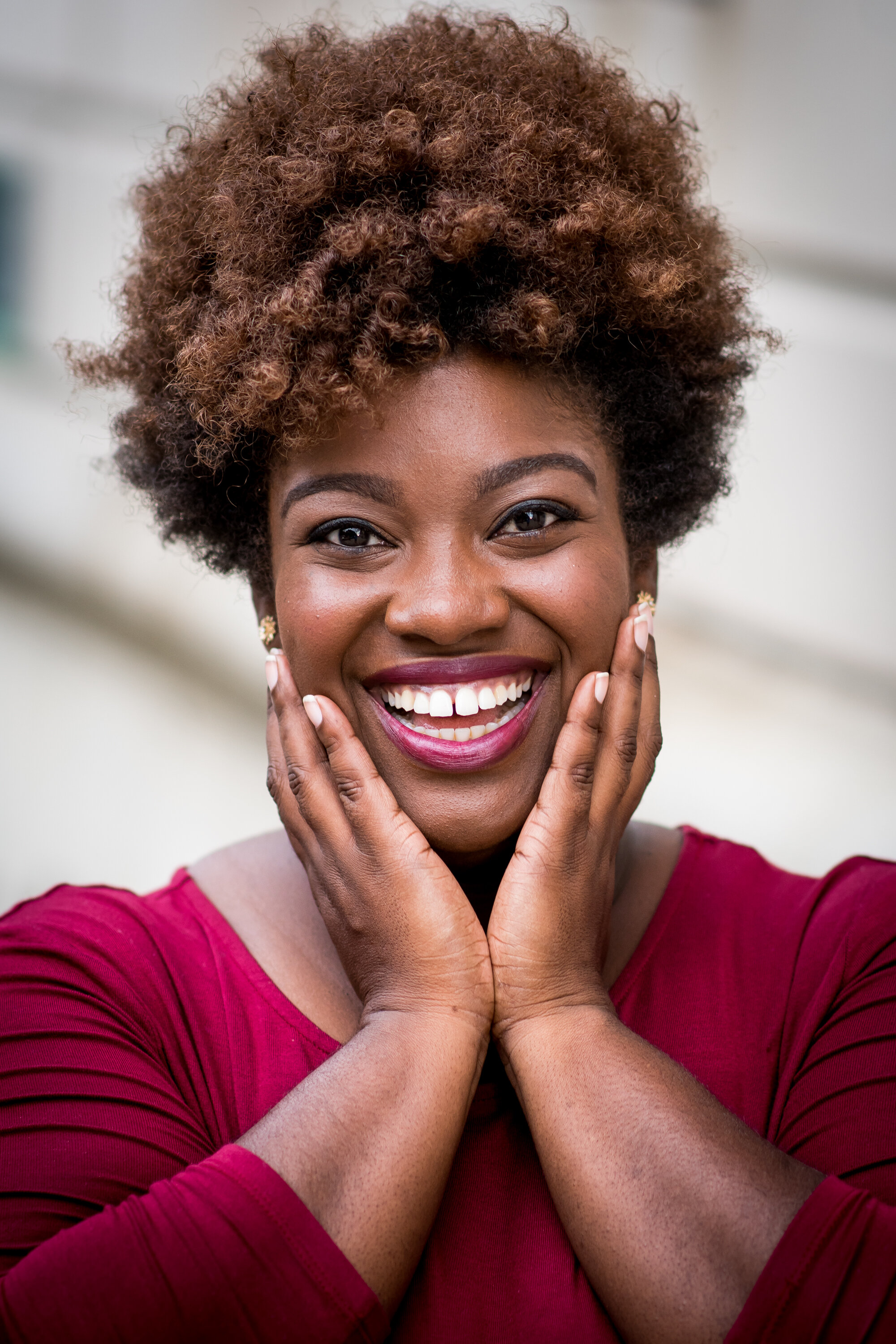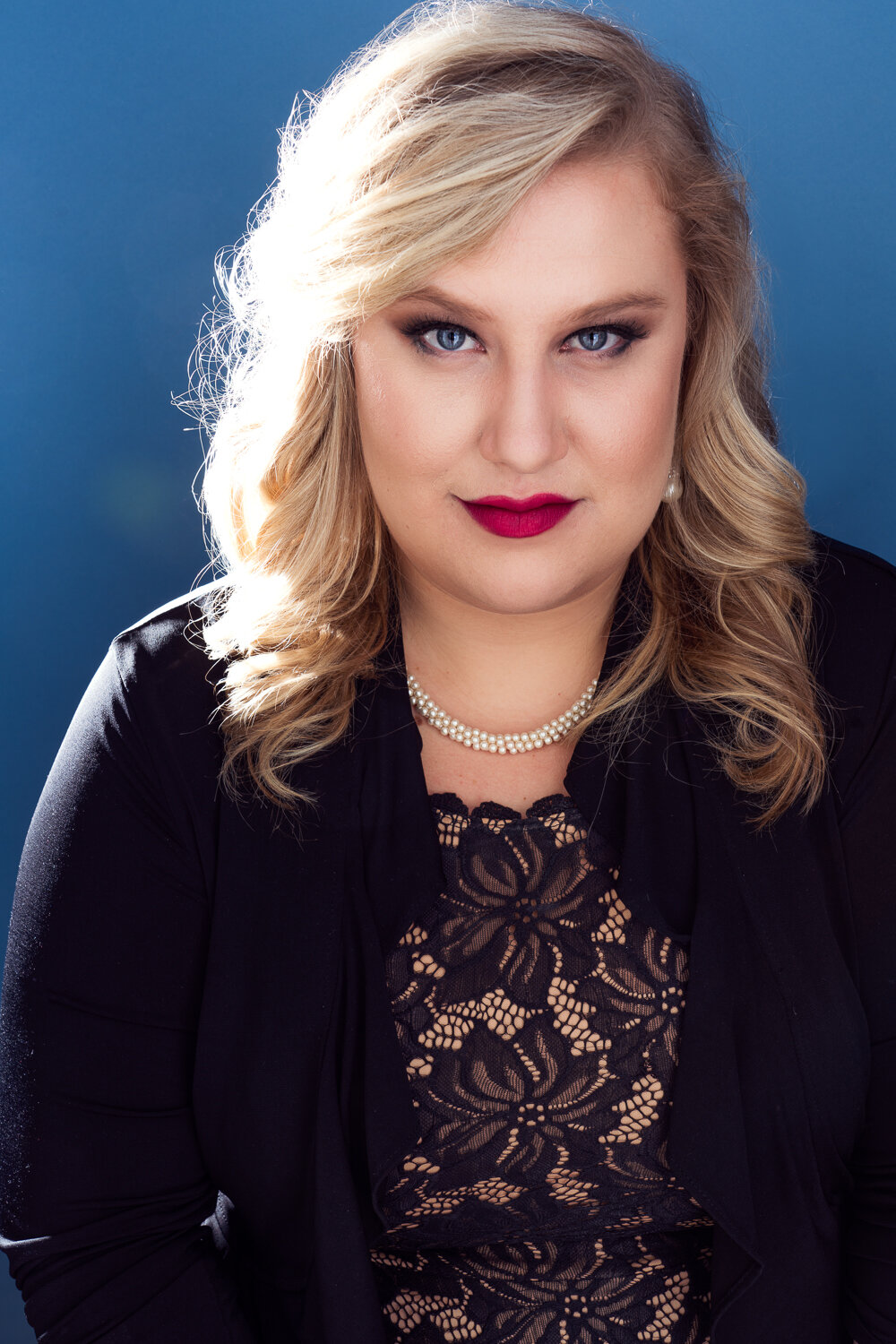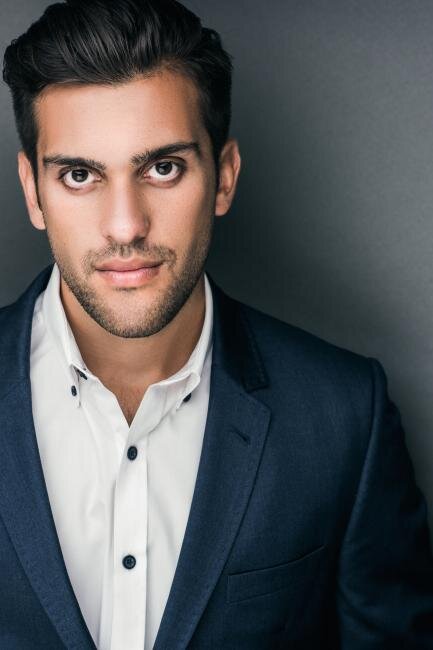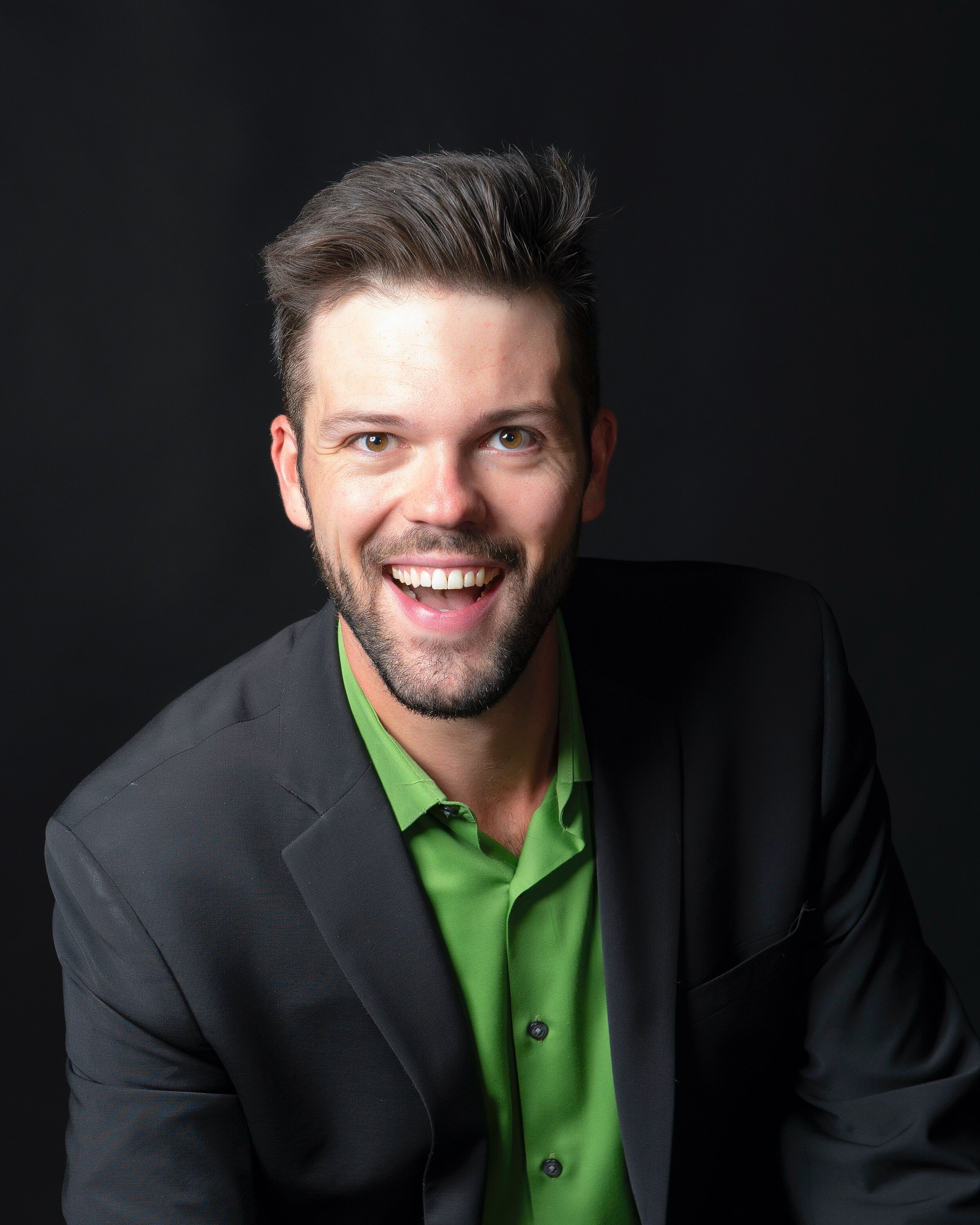This summer, Virginia Opera’s Adam Turner has been reading dystopian novels describing apocalyptic scenarios, a curious choice of genre for a pandemic, but perhaps he intuitively was choosing to fight fire with fire. His response to the books shows the positive bent of Virginia Opera’s Artistic Director and Conductor. In our telephone conversation, he noted that apocalypse is a Greek word whose meaning is revelation, an event that reveals what is important to us and calls upon us to take action. For him, COVID-19’s devastating impact on the opera world has brought into focus just how important opera is to so many people, singers and musicians, creative staff like conductors and stage directors, lighting, set, and costume designers, all the people necessary to put on an opera performance, from costume and set makers to business and media staff, ticket takers, parking lot attendants, and of course Virginia Opera fans who depend on the company for both entertainment and cultural enrichment. So, Virginia Opera has set a course to enhance its relationship and continue its service to Virginia even with the constraining limitations wrought by the 2020 pandemic. This effort is revealed in their new program called “Stayin’ Alive – Virginia Opera’s Alternate Fall” that initiates this month, where the code word is interactive.
Virginia Opera’s Artistic Director and Conductor, Adam Turner.
The term Stayin’ Alive is an attention getter as a disco meme derived from the 1970s Bee Gees hit song featured in the film “Saturday Night Fever” and in an eponymous follow up film. Hearing only a few notes starts my mind replaying scenes of a young John Travolta in a white, bell-bottomed suit making dance moves on the disco floor. For VO, “Stayin’ Alive” has been adopted as an umbrella phrase for a constellation of activities the company will use to reach out to its patrons while unable to commune with us in the opera houses in Norfolk, Fairfax, and Richmond; some events will be pay-per-view to help support VO’s activities. Director Turner also sees the possibility that some of these events may prove so successful that they will continue beyond this season as ways the company can connect with and serve its patrons. The program kicks off on September 9 with the beginning of a series of “Weekly Wednesday Wind Down”, live 30-min concerts on the lawn of the Harrison Opera House in Norfolk in front of a limited, socially-distanced audience. Next up:
“Virtual Showcase”
Virginia Opera Herndon Foundation Emerging Artists
September 16, 2020
Stayin’ Alive kicks it up a notch on September 16 with an online concert-and-more program called “Virtual Showcase” that will feature four of VO’s Herndon Foundation Emerging Artists. Each artist will sing one song or aria with the added interest being that fans are now voting on a choice between two songs that each singer is prepared to sing. I’ve voted, and voting is open until September 9 at this link - the deadline may be extended. The pandemic has greatly constrained the budget and activities that Virginia Opera can conduct across the state. In a normal year, 15-20 Emerging Artists would be brought in to perform at operas and/or in various VO educational and outreach activities. These artists are selected from 500-700 applicants who would be pared down to 125-200 that would receive auditions in New York City with a final call back of 40-50 artists for final auditions. The most impressive of that crop would then be invited to Norfolk for training activities. This Fall, VO could only bring in four Emerging Artists; revenue from the Virtual Showcase will go to supporting the Emerging Artist program..
left to right: Emerging Artists soprano Symone Harcum, mezzo-soprano Whitney Robinson, baritone Nicholas Martorano, and bass-baritone Eric J. McConnell.
The artists to be showcased on September 16 are soprano Symone Harcum, mezzo-soprano Whitney Robinson, baritone Nicholas Martorano, and bass-baritone Eric J. McConnell. These are already accomplished singers who have chosen to apply some finishing touches to their craft before proceeding with their careers as opera soloists. I teasingly asked Mr. Turner when an opera singer was considered completely emerged. With good humor, he said when they have achieved the experience and stature to return to VO as featured artists. He pointed out that famous diva Renee Fleming was once a VO Emerging Artist. Ms. Harcum and Ms. Robinson appeared in the VO spring production of La Cenerentola, playing sisters Clorinda and Tisbe. All of these artists will be singing roles in VO operas planned for Spring 2021 (see below). Mr. Turner and VO’s Chorus Master and Assistant Conducter, Brandon Eldredge will be accompanying the singers on piano; singers and accompanists will be together in the same space, appropriately distanced – a real concert, not one meticulously threaded together with performers in different locations.
A Facebook screen capture shot of Martinis, Manhattans, and Maestros showing Maestro Turner holding up one of his summer apocalyptic reads while Maestro Eldredge views his selection, connected on a Zoom call.
At the beginning of our conversation, I asked Director Turner, “Why opera? What does opera offer a community that makes it worth the effort? He remarked that the company was founded 46 years ago by community leaders in Norfolk as a way to bring cultural enrichment to the Norfolk area and make a statement that the community had “arrived”. The company expanded to give presentations across Virginia and currently receives support from the Virginia Commission for the Arts and grants from several cities and counties, an affirmation of the contribution that opera brings to Virginia. He believes the special appeal of opera is the magical ability of the unamplified human voice to connect with people and communicate stories in a way that “elevates their lives”. In the past, I have referred to such experiences as transcendent. However, for me, it has been an experience encountered primarily by being there; so, it begs this question: in shifting to online programs, is it possible to achieve experiences of that sort? We didn’t discuss this question explicitly, but I thnk that VO feels the problem deeply and is thereby making their productions for the remainder of the year ones that reach out to draw the audience members in, not just present them with straightforward recitals. For example, the Wednesdays program above, and the new “Curbside Concerts” project (for $500-1,000, Virginia Opera will bring an opera concert to your location of choice, observing COVID-19 restrictions, of course) seek emotional as well as musical connection. Perhaps more telling are the informal Martinis, Manhattans, and Maestros online discussions led by Mr. Turner and Mr. Eldredge, where various topics are discussed and include a chat feature for viewers to post questions and have them addressed in real time; there have been two so far. As noted above, interactivity is designed into the Virtual Showcase by including voting for arias, but also, it won’t have a traditional recital format; viewers of the concert will be able to make comments and ask questions online in real time, and Mr. Turner says there will be a few “surprises”.
Virginia Opera plans to begin its performances of operas in front of an audience in the Norfolk, Fairfax, and Richmond opera houses starting in February 2021. Virginia Opera is also constantly monitoring and reassessing the situation and is prepared to make modifications as needed.
Virginia Opera’s Spring 2021 season:
La Voix Humaine by Francis Poulenc and Gianni Schicchi by Giacomo Puccini – (N) Feb 5, 7, 9; (F) Feb 13, 14; (R) Feb 19, 21
The Marriage of Figaro by Wolfgang Amadeus Mozart – (N) Mar 12, 14, 16; (F) Mar 20, 21; (R) Mar 26, 28
The Pirates of Penzance by W. S. Gilbert and Arthur Sullivan – (N) Apr 16, 18, 20; (R) Apr 23, 25; unfortunately the Fairfax venue was not available during this time period.
What might the future hold for Virginia Opera beyond this un-normal year? While part of a team and a company with a board, as Artistic Director, Mr. Turner has the major responsibility for opera selections and charting the company’s artistic future, which means in no small measure, he is also charting Virginia’s cultural future. Maestro Turner began with Virginia Opera as the chorus master and assistant conductor. He credits learning on the job as giving him a good understanding of the three principal communities that VO serves, Norfolk, Fairfax, and Richmond, three very different communities. Pleasing many masters must be challenging. What he really has hopes for is ensuring that 20th and 21st century composers get heard as well as popular classical works and that Virginia artists and composers, and Virginia-centric storytelling get presented. He leans toward composers Mason Bates who was raised in Richmond, Gregory Spears who grew up in Virginia, and Adolphus Hailstork, composer-in residence at Old Dominion Univeristy in Norfolk and for Virginia stories, perhaps beginning with Ricky Ian Gordon’s Rappahannock County.
He’d also like to offer some of the newer works that address the social issues of the day, which he said might draw VO closer to its audiences, though for more controversial operas, audience preparation would be essential – through lectures and meetings with community groups. While this still relatively new role as Artistic Director is rewarding, he really enjoys conducting, where his focus can completely be on working with the music and the singers. Still, he has conducted every VO performance for the last two years and envisions having a few guest conductors in the future that will allow him to give more attention to other aspects of a production; as Artistic Director, he ultimately has responsibility for everything. Mr. Turner’s friendliness and down-to-earth nature belie a very high level of artistry. If you have read my reports on VO performances, and I miss very few, you will know that I am more than happy to have Maestro Turner in the pit and am typically impressed with the quality of VO productions. We discussed a bit about orchestras employed by VO, but perhaps that is worthy of a report all by itself. Certainly, orchestras themselves have been devastated by the pandemic.
Director Turner is upbeat and positive about opera’s and Virginia Opera’s future, but he is not immune to the sadness that we all feel, missing that physical connection of live, in person, fully staged opera, sharing the sense of community and what it means to be human that we get from a fine opera production. The human voice, live and unamplified, with a full orchestra in the pit, bringing me to joy and tears, and elevating my life is what I truly long for. I think we are all in agreement on that point. The coronavirus pandemic has been a spiritual apocalypse and has revealed how badly we need cultural sustenance, and for many of us, that means opera. I applaud Virginia Opera for forging ahead to explore new directions that this pandemic both allows and requires, and it will be fun to see and sample what they are able to put on the table for us. Virginia Opera’s website proudly states that the Virginia Assembly has designated Virginia Opera as the Official Opera Company of the Commonwealth of Virginia. And under Adam Turner’s direction, VO is not resting on its laurels or letting its audience be socially-distanced away.
The Fan Experience: A household pass for the Virtual Showcase can be purchased ($20) at this link; the video of the live performance will be available for one week.
You can find a calendar of Stayin’ Alive events here and information on the Spring 2021 fully staged operas using the Experience tab at the top of the homepage.
You will need a scorecard to keep track of all of the operas, concerts, festivals, and myriad educational and outreach activities of Virginia Opera. I recommend getting familiar with their website and signing up for their announcements; you can sign up using the pop-up box on first access of their website or send a request to info@vaopera.org.

